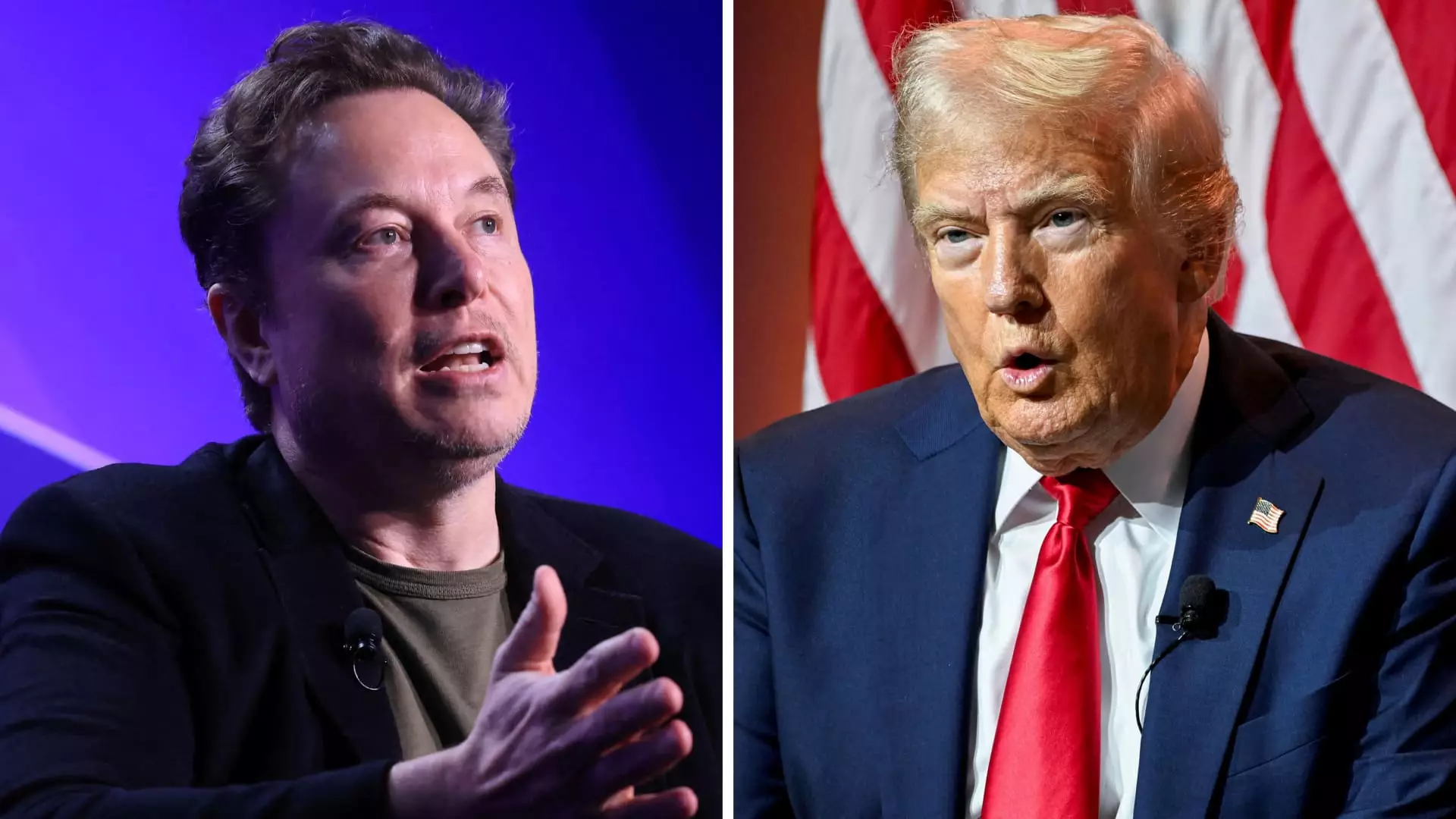In the realm of American politics, the alliances formed between various influential figures often paint a complex picture of mutual benefits and strategic considerations. This has become especially apparent in the latest developments involving former President Donald Trump and billionaire entrepreneur Elon Musk. With Musk’s significant roles in both Tesla and SpaceX, the idea of him assuming a cabinet position in a potential Trump administration raises questions about pragmatism versus ambition.
During a recent interview, Trump articulated his view that Musk’s commitment to his enterprises makes it improbable for the tech mogul to serve effectively in a governmental capacity. This sentiment reflects a broader acknowledgment of the demands placed on leaders running large companies. While it could be enticing to envision Musk applying his innovative outlook within a presidential cabinet, the reality is that his entrepreneurial responsibilities would likely hinder his capacity to contribute. Trump’s statement highlights a pivotal point: the melding of corporate leadership and political service is not merely a matter of personal desire; it hinges on logistical feasibility.
The invitation for Musk to act as a consultant instead of a cabinet member indicates a strategic maneuver on Trump’s part. By suggesting this arrangement, Trump preserves the possibility of leveraging Musk’s expertise without the commitment of full-time governmental duties. This is particularly relevant in an election year, where flexibility in alliances can be vital. Musk’s prominence in discussions around artificial intelligence, for instance, positions him as a valuable resource for policy-making without being directly encumbered by official capacities.
It is fascinating to observe the transformation from rivalry to alliance between Trump and Musk. Just two years prior, both figures were embroiled in public disputes, frequently taking jabs at each other on platforms like Twitter. However, the political landscape can shift dramatically, and Musk’s foray into right-wing politics has cemented his alliance with Trump. Musk’s endorsement, particularly following a significant personal crisis for Trump, illustrates a profound evolution in their relationship, characterized now by mutual support rather than animosity.
The concept of establishing a “government efficiency commission,” as proposed by Musk, signifies a broader ambition for innovation in governance. Both individuals envision a collaborative spirit, albeit with the understanding that practical limitations exist. Musk’s willingness to assist in a theoretical commission underscores a desire to infuse business acumen into government operations, reflecting a growing trend of intertwining corporate strategies with public administration.
The budding relationship between Trump and Musk represents a fascinating case study in modern political dynamics. Balancing personal ambitions with external obligations presents significant challenges, especially for someone like Musk who operates at the helm of multiple high-stakes ventures. While the notion of cabinet positions is enticing, practicality demands a careful consideration of what true collaboration looks like. As elections approach and political affiliations shift, it will be interesting to observe how this partnership develops and what it ultimately means for governance in the United States.


Leave a Reply